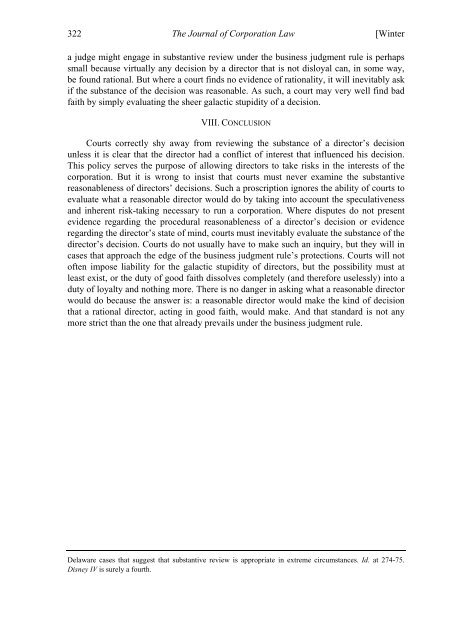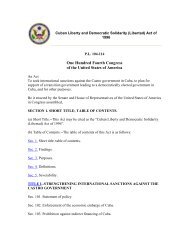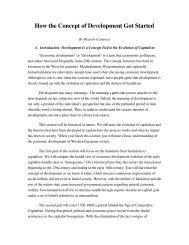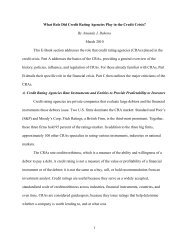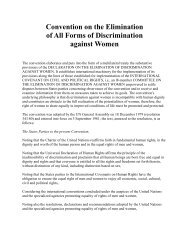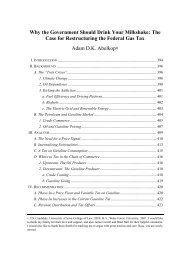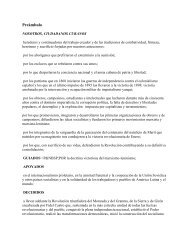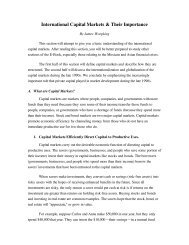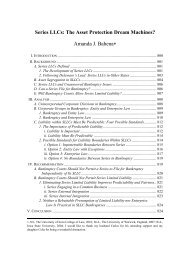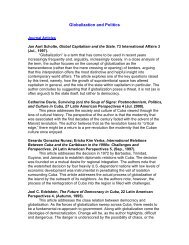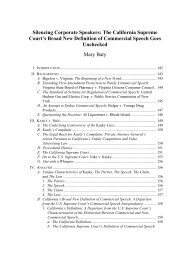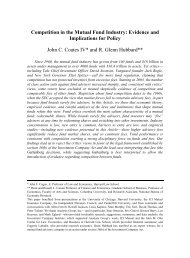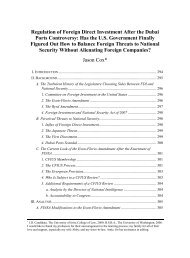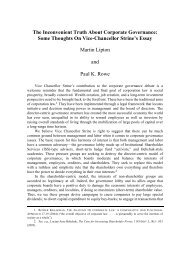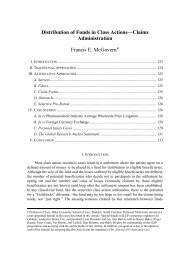Galactic Stupidity and the Business Judgment Rule - College of Law
Galactic Stupidity and the Business Judgment Rule - College of Law
Galactic Stupidity and the Business Judgment Rule - College of Law
Create successful ePaper yourself
Turn your PDF publications into a flip-book with our unique Google optimized e-Paper software.
322 The Journal <strong>of</strong> Corporation <strong>Law</strong> [Winter<br />
a judge might engage in substantive review under <strong>the</strong> business judgment rule is perhaps<br />
small because virtually any decision by a director that is not disloyal can, in some way,<br />
be found rational. But where a court finds no evidence <strong>of</strong> rationality, it will inevitably ask<br />
if <strong>the</strong> substance <strong>of</strong> <strong>the</strong> decision was reasonable. As such, a court may very well find bad<br />
faith by simply evaluating <strong>the</strong> sheer galactic stupidity <strong>of</strong> a decision.<br />
VIII. CONCLUSION<br />
Courts correctly shy away from reviewing <strong>the</strong> substance <strong>of</strong> a director’s decision<br />
unless it is clear that <strong>the</strong> director had a conflict <strong>of</strong> interest that influenced his decision.<br />
This policy serves <strong>the</strong> purpose <strong>of</strong> allowing directors to take risks in <strong>the</strong> interests <strong>of</strong> <strong>the</strong><br />
corporation. But it is wrong to insist that courts must never examine <strong>the</strong> substantive<br />
reasonableness <strong>of</strong> directors’ decisions. Such a proscription ignores <strong>the</strong> ability <strong>of</strong> courts to<br />
evaluate what a reasonable director would do by taking into account <strong>the</strong> speculativeness<br />
<strong>and</strong> inherent risk-taking necessary to run a corporation. Where disputes do not present<br />
evidence regarding <strong>the</strong> procedural reasonableness <strong>of</strong> a director’s decision or evidence<br />
regarding <strong>the</strong> director’s state <strong>of</strong> mind, courts must inevitably evaluate <strong>the</strong> substance <strong>of</strong> <strong>the</strong><br />
director’s decision. Courts do not usually have to make such an inquiry, but <strong>the</strong>y will in<br />
cases that approach <strong>the</strong> edge <strong>of</strong> <strong>the</strong> business judgment rule’s protections. Courts will not<br />
<strong>of</strong>ten impose liability for <strong>the</strong> galactic stupidity <strong>of</strong> directors, but <strong>the</strong> possibility must at<br />
least exist, or <strong>the</strong> duty <strong>of</strong> good faith dissolves completely (<strong>and</strong> <strong>the</strong>refore uselessly) into a<br />
duty <strong>of</strong> loyalty <strong>and</strong> nothing more. There is no danger in asking what a reasonable director<br />
would do because <strong>the</strong> answer is: a reasonable director would make <strong>the</strong> kind <strong>of</strong> decision<br />
that a rational director, acting in good faith, would make. And that st<strong>and</strong>ard is not any<br />
more strict than <strong>the</strong> one that already prevails under <strong>the</strong> business judgment rule.<br />
Delaware cases that suggest that substantive review is appropriate in extreme circumstances. Id. at 274-75.<br />
Disney IV is surely a fourth.


